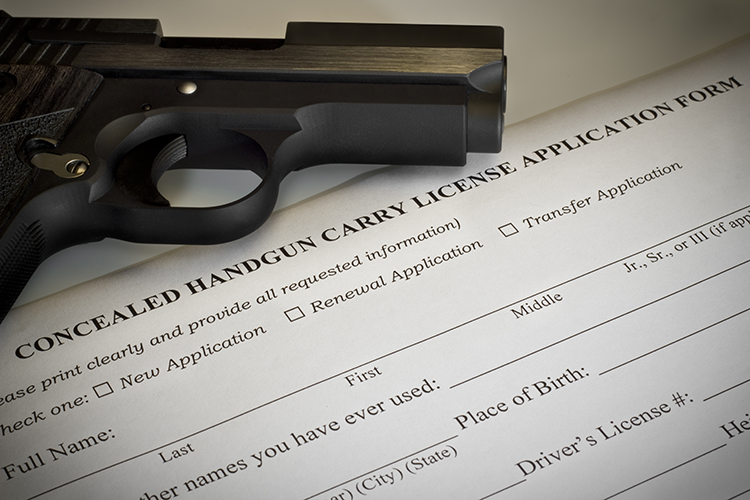2nd Circuit sticks to its guns on constitutionality of concealed-carry law after SCOTUS remand

New York residents can’t carry handguns in sensitive locations and must show evidence of good moral character when applying for a concealed-carry license. (Image from Shutterstock)
New York residents can’t carry handguns in sensitive locations and must show evidence of good moral character when applying for a concealed-carry license.
Those provisions of a New York law remain in effect as a result of a decision last week by a federal appeals court.
The Oct. 24 decision by the 2nd U.S. Circuit Court of Appeals at New York left intact most of the state’s Concealed Carry Improvement Act, according to an Oct. 24 press release by New York Attorney General Letitia James.
The 2nd Circuit ruled after the U.S. Supreme Court directed the appeals court to reconsider its prior decision in the case in light of United States v. Rahimi. In the June Rahimi decision, the Supreme Court upheld a federal law banning gun possession by those who are subject to domestic-violence restraining orders.
The statute in Rahimi is “quite different” from the law at issue in the 2nd Circuit case, the appeals court said. But the methodology used by the Supreme Court is significant, the appeals court said, because it recognizes that the Second Amendment isn’t a right to carry any weapons in any manner and for whatever purpose.
Based on that methodology, the appeals court allowed enforcement of New York’s gun ban in sensitive places that include behavioral and drug treatment centers, public parks, zoos, bars and theaters.
The appeals court didn’t rule on a ban on guns in houses of worship, however, because the challenge became moot after the state changed the law to allow designated security teams to carry guns in those locations.
The 2nd Circuit also allowed enforcement of provisions that require concealed-carry permit holders to demonstrate good moral character.
The New York law’s definition of character “is a proxy for dangerousness: whether the applicant, if licensed to carry a firearm, is likely to pose a danger to himself, others or public safety,” the appeals court said.
Given the nation’s history of laws banning misuse of firearms by those who threaten physical harm to others, the 2nd Circuit said, it can’t conclude that every denial on character grounds will violate the Second Amendment.
The appeals court did see constitutional issues, however, with provisions requiring concealed-carry applicants to disclose their social media accounts and creating a default presumption that guns are banned on privately owned property open to the public.
The decision still allows private property owners to ban guns on their property, including by posting signs, according to James’ press release.
Law360 and the Brooklyn Daily Eagle covered the opinion, while How Appealing linked to an additional news story.
Erich Pratt, senior vice president of Gun Owners of America, a nonprofit organization, told Law360 that the 2nd Circuit ruling is “nearly identical” to the 2nd Circuit’s prior decision. The 2nd Circuit “got it wrong the first time,” and the new decision is “a slap in the face” to the Supreme Court and New York gun owners, Pratt said.
New York had adopted the Concealed Carry Improvement Act after the Supreme Court struck down its prior law that requiring a showing of “proper cause” to obtain a concealed-carry gun license. The Supreme Court’s decision, New York State Rifle & Pistol Association Inc. v. Bruen, was issued in June 2022.
The 2nd Circuit’s decision is Antonyuk v. James.
Write a letter to the editor, share a story tip or update, or report an error.



